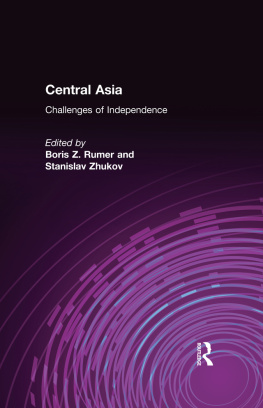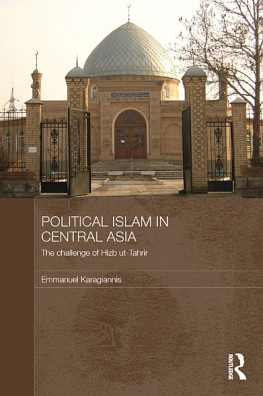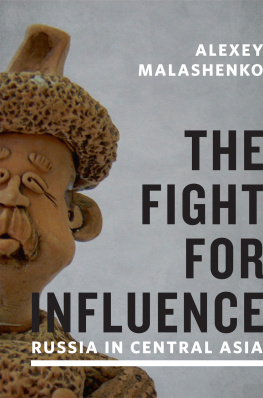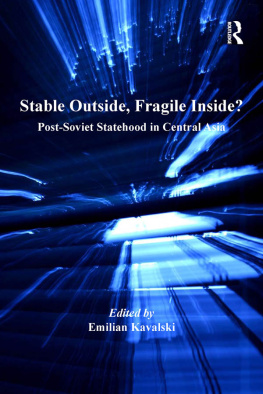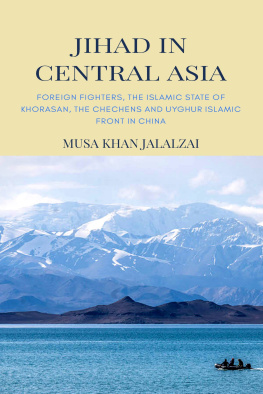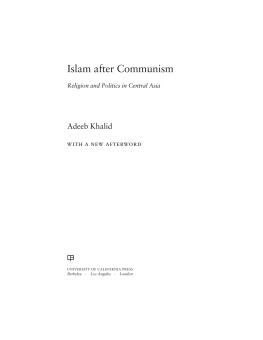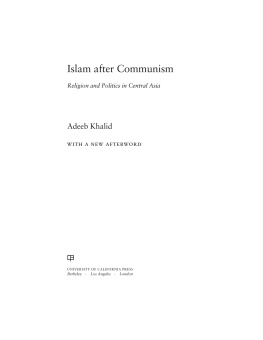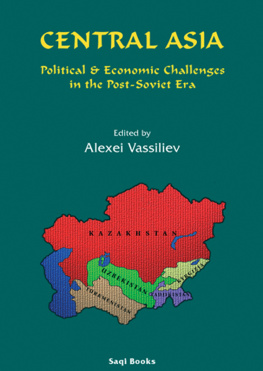First published 1992 by M.E. Sharpe
Published 2015 by Routledge
2 Park Square, Milton Park, Abingdon, Oxon OX14 4RN
711 Third Avenue, New York, NY 10017, USA
Routledge is an imprint of the Taylor & Francis Group, an informa business
Copyright 1992 Taylor & Francis. All rights reserved.
No part of this book may be reprinted or reproduced or utilised in any form or by any electronic, mechanical, or other means, now known or hereafter invented, including photocopying and recording, or in any information storage or retrieval system, without permission in writing from the publishers.
Notices
No responsibility is assumed by the publisher for any injury and/or damage to persons or property as a matter of products liability, negligence or otherwise, or from any use of operation of any methods, products, instructions or ideas contained in the material herein.
Practitioners and researchers must always rely on their own experience and knowledge in evaluating and using any information, methods, compounds, or experiments described herein. In using such information or methods they should be mindful of their own safety and the safety of others, including parties for whom they have a professional responsibility.
Product or corporate names may be trademarks or registered trademarks, and are used only for identification and explanation without intent to infringe.
Library of Congress Cataloging-in-Publication Data
Poliakov, Sergei Petrovich
[Bytovoi islam. English]
Everyday Islam : religion and tradition in Rural Central Asia
/ by Sergei P. Poliakov : edited with an introduction by
Martha Brill Olcott : translated by Anthony Olcott.
p. cm.
Translation of : Bytovoi islam.
Includes index.
ISBN 0-87332-673-3 (cloth)
ISBN 0-87332-674-1 (pbk.)
1. Soviet Central AsiaPolitics and government.
2. MuslimsSoviet Central Asia.
3. Soviet Central AsiaSocial life and customs.
4. IslamSocial aspectsSoviet Central Asia.
I. Olcott, Martha Brill, 1949-
II. Title.
DK859.P6513 1991
958.400882971dc20
91-20989
CIP
Photographs by the author.
ISBN 13: 9780873326742 (pbk)
ISBN 13: 9780873326735 (hbk)
The book you are about to read is likely to startle you and may even offend you, but it is certain to change your understanding of Central Asia. These were precisely the goals that Professor Sergei Petrovich Poliakov of Moscow State Universitya Russian ethnographer in his mid-fifties and a lifelong member of the Communist partyset for himself in writing it. His aim was to produce a semischolarly account of the findings of more than thirty years of field research in Central Asia that would stun the reader into accepting his view of that world and the crisis that threatens it. For this reason I decided not to edit the manuscript to make it conform to American academic norms. Sergei Petrovich is going to speak to you in his own words and describe reality as he sees it. My purpose here is simply to introduce you to both the author and his subject.
The book falls into the genre of what in Russian is called publitsistika. It is a journalistic work insofar as the author is trying to shape opinion, but it is not a work of communist propaganda. Sergei Petrovich genuinely holds the views he sets forth here. Indeed, this is the first work Poliakov has written that he feels reflects his honest and freely given opinion, for the book is wholly uncensored.
Poliakov feels some urgency to convey his views, for he believes that a deepening demographic crisis in Central Asia indicates a need for fundamental change. He believes Central Asia to be mired down by the weight of traditionalismthat is, by everyday Islam: the customs, values, and economic practices of traditional rural Islamic society. In Poliakovs view these ageold folkways, reinforced by religious authority and traditional elites, are at the root of the regions stagnation; only by breaking with that past can Central Asia become a modem and prosperous society.
Central Asians themselves now blame their plight on seventy-odd years of Soviet rule and the decades of Russian tsarist colonial rule that preceded it. Although he recognizes and acknowledges these sentiments, it is Poliakovs view that traditional Central Asian elites were able to suborn and subordinate the Communist party in their region long ago, so that they are fully responsible for current ills. Poliakovs position is at odds with traditional Soviet historiography, which maintained that the Central Asian masses welcomed Soviet rule (and sometimes even tsarist rule) as a liberation from a benighted past. It is also in conflict with the recent revisionist historiography of the academic establishment in Central Asia, which has undertaken a more even-handed treatment of the regions resistance to Russian domination.


